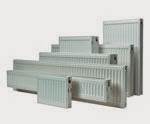Thermostatic
radiator valves are fitted on all modern systems
and they regulate the heat input in any given room. Our grandparents did not have this luxury and
their heaters were either on or off.
If you want to change the valves on your
old system, you need to know that they are often referred to as TRVs. These valves sense the temperature within
their mechanism and they will shut themselves off when the radiator has reached
to required temperature.
It is very important to change your heater
valves if they are past their best. You
will be able to save on your utility bills as your radiators are not blazing
hot 24/7 and you will also reduce the carbon footprint that your home makes
where archaic valves are involved.
Whereas the early TRVs had a wax plug
within the housing which expanded and contracted during temperature changes,
the modern ones regulate temperature by means of electronics. Although these
are perhaps not widely used yet, they will allow you to programme individual
radiators to come on when you want.
If you should have a room thermostat in one
of your rooms to service the whole house, you need to know that in that
particular area you should not have a thermostatic valve fitted to your
heater. Your thermostat and this valve
will work against each other and you should just have the ordinary valve on
open all the time.
Another point to make in favour of TRVs is
that if you have a sunny room, your radiator will not click on as much as a
room facing north. The sun itself will
heat up the room with a little help from your heater in the winter and you will
save energy. In rooms that you use only rarely you can switch off the radiator
and make further savings.
When buying valves, you must ensure that
they are the right size for the pipework that is already in your home. All these points you can discuss with your
plumber on line as there is always advice on hand even if you are not
physically in a shop.
To peruse the different types of thermostatic radiator valves please see
us at Designer Radiators
Direct
Follow us :Direct







